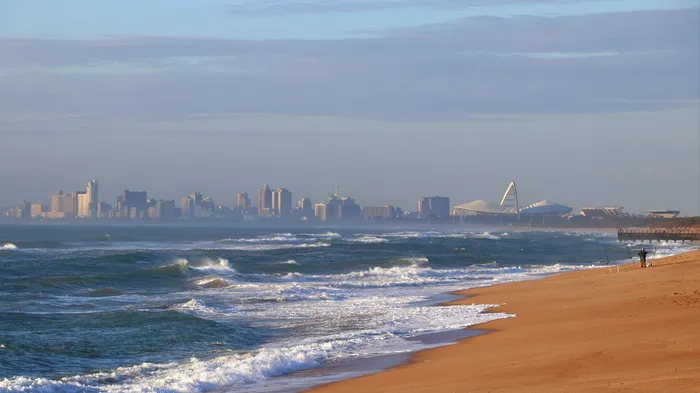What if the answer to South Africa’s youth unemployment lies in the ocean?

South Africa’s ocean and coastal sectors could contribute significantly to economic growth
Image: Supplied
South Africa’s ocean and coastal sectors could contribute significantly to economic growth and job creation, particularly among the country’s unemployed youth.
According to a 2024 report by the Department of Forestry, Fisheries and the Environment (DFFE), the coastal and oceans economy remains largely underdeveloped but could add around R166.6 billion to GDP, about 4.54% and generate more than 608,000 jobs by 2035.
"Despite the overwhelmingly maritime nature of South Africa’s geography, its clear dependence on the ocean, and the contribution of the marine sector to the overall national economy, South Africa has not fully explored the enormous potential of its ocean space," the report noted.
The study which examined the broader social and economic benefits of the oceans economy, also found that the oceans economy already accounted for 4.47% of South Africa’s total GDP and 2.86% of total employment.
Currently, South Africa has one of the highest unemployment rates in the world, standing at around 32%. That figure could worsen, economists warn, as the country faces the possible economic fallout of looming 30% tariffs on key exports to the United States.
According to Sanlam’s Teboho Makhabane, Head of ESG and Impact, the blue economy offers a real chance for the country to create jobs and support the environment.
Makhabane pointed to opportunities in sectors such as coastal tourism, artisanal fisheries, aquaculture, and marine conservation that could generate large numbers of jobs, especially for low- and semi-skilled workers.
“In South Africa, this offers strategic opportunities beyond job creation, tourism, and fisheries, extending into aquaculture, coastal infrastructure, marine conservation, and climate-adaptation services like mangrove restoration. Yet these opportunities remain underutilised,” Makhabane said.
He added that “Coastal tourism and artisanal fisheries alone already account for more than 49-million jobs across the continent".
"If scaled responsibly through community-based co-management, sustainable aquaculture, and low-impact infrastructure development, these sectors can absorb large numbers of low- and semi-skilled workers.”
IOL previously reported, the KwaZulu-Natal provincial government signed an agreement with Navigo aimed at unlocking the province’s estimated R100 billion ocean economy.
The deal included plans for a superyacht manufacturing hub, marine skills training, port upgrades, and international marketing of KZN-built vessels.
IOL News
mthobisi.nozulela@iol.co.za
Get your news on the go, click here to join the IOL News WhatsApp channel
Related Topics: